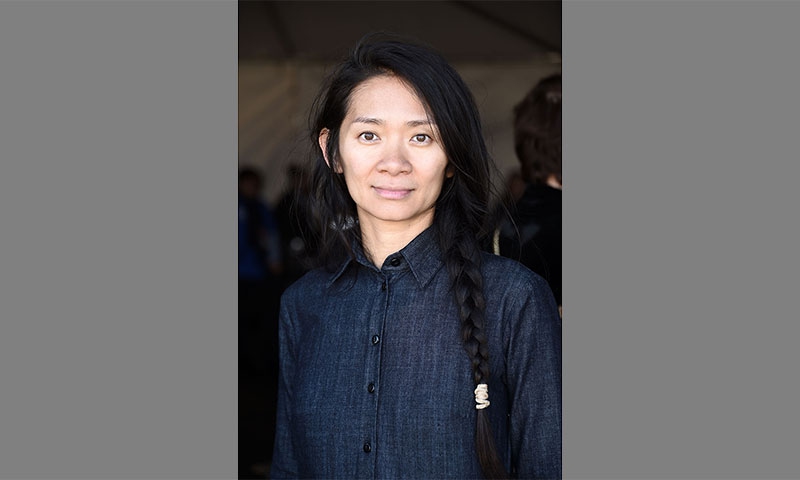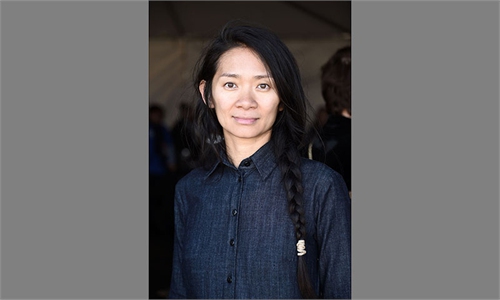
Chinese female director Zhao Ting Photo: CFP
Film director Chloe Zhao, known in China as Zhao Ting, and her film Nomadland, have been in a swirl of controversy in recent days. Nomadland was scheduled to be released in the mainland on April 23. Although so far no decision has been made on whether the film will be released on time, foreign media have already started to speculate that it could be boycotted and its promotional material censored in China. They portrayed Zhao as a victim of "patriotic frenzy" and "nationalist backlash," as if China is a country that is overwhelmed by populism, censors speech and cannot tolerate criticism.
Zhao described China as "a place where there are lies everywhere" in an interview back in 2013. The comments led to a backlash against her. It's reasonable that some Chinese netizens felt uncomfortable about what Zhao said. Did the comment reflect Zhao's real thought? That China is "a place where there are lies everywhere" conforms to the West's biased and stereotypical description of China. One possibility might be that she said so at that time to cater to Western audiences.
Zhao's comments were quoted in an article in the New York-based magazine Filmmaker, but by mid-February, it had been removed. Chinese netizens speculated this was done for her film's release in China. These have affected Chinese netizens' perception of Zhao, and their attitude toward Zhao's film.
Zhao's case points to the fact that the Chinese public won't buy two-faced behavior. Some people criticize China when they face the Western audiences while at the same time wanting to benefit from China's huge market. It's increasingly difficult to do so as Chinese public is gaining more confidence. "Why those who insult and are hostile to China should be given the chance to become famous and make money in China?" one Chinese netizen asked. This reflects the Chinese people's contempt for such behavior.
Such a mentality is not unique to any particular country. In 2019, after then general manager of the Houston Rockets Daryl Morey posted a tweet to express support for Hong Kong rioters, several Chinese businesses suspended ties with the Texas-based team. Of course, the decisions might involve patriotism, but they were fundamentally a result of market choice. Morey's case also laid bare the West's hypocrisy. After NBA Commissioner Adam Silver released a statement that sounded not harsh toward China after Morey's tweet about Hong Kong, Silver was accused of appeasing the Chinese public and had drawn intense criticism from the US public.
The West opinion elites have been making an issue of China's so-called censorship. They also repeatedly accused Hollywood studios of self-censoring their films to placate Chinese censors by avoidng sensitive content about China. It's not surprising that some Western media outlets have tried their best to link the controversy around Zhao to China's censorship this time.
In the Western media's narratives, China is a country that suppresses freedom of speech and cannot tolerate criticism. But the truth is, China has been more and more open in terms of free speech. China has had the world's largest number of net users and an increasingly vibrant online public opinion.
Zhao's case, in fact, is not an issue about censorship. It's about how the audience of her home country will judge her past comments and fame today. There will be clashes of different opinions. Ultimately, the market will make its decision.
The author is a reporter with the Global Times. opinion@globaltimes.com.cn


